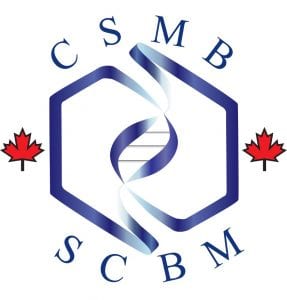
Budget 2017 falls short in support for discovery research
2
1
FOR IMMEDIATE RELEASE
OTTAWA, March 27, 2017 – The board of the CSMB supports significant measures in the federal government’s 2017 budget to improve skills training, to advance gender equity, to attract foreign talent and to support the National Research Council. However, we are surprised and disappointed that besides some modest targeted investments into programs such as the Stem Cell network, the budget does not contain any new resources for discovery research, especially for the open competitions at the Canadian Institutes of Health Research (CIHR) and the Natural Sciences and Engineering Research Council (NSERC).
We understand that the government continues to make important investments in science infrastructure through the Post-Secondary Institutions Strategic Investment Fund (Budget 2016) and the Canada Foundation for Innovation (Budget 2015). It also uses funds from the Canada Excellence Research Chairs program to create 25 new Canada 150 Chairs to attract top-tier international scholars and researchers. However, we question the rationale for expanding both infrastructure and numbers of researchers in a context where funding for CIHR and NSERC is stagnant. Operational grants, which support the cost of research and the salaries of trainees and research staff, are essential for innovative research to occur. As a result of 10 years of stagnation of tri-council research funding under the previous government, the operational funding for fundamental research in Canada is well below our nation’s research capacity, and remains well below Canada’s OECD equivalents. As a consequence, many Canadian research labs are downsizing or closing, thereby eliminating skilled jobs and squandering prior investments in research.
We appreciate the fact that the budget document acknowledges the bottleneck of funding for discovery research, basic science and academia in the value chain approach for economic development (Figure 1.1 Budget 2017). We strongly support the allocation of resources for creating the office of a Chief Science Advisor and take note of the budget document’s reference to the soon to be released Fundamental Science Review. However, like large parts of the scientific community, we are waiting impatiently for the recommendations of the Fundamental Science Review that we hope will inspire an integrated innovation strategy for the support of the continuum from discovery research to application. We are commited to working closely with the Chief Science Advisor and with the Ministers of Science and Health to implement the anticipated review’s recommendations to strengthen Canada’s research environment.
We urge the federal government to ensure that discovery research and the training of the next generation of science and technology experts in Canada does not lose further ground and that significant investments into the open competitions at CIHR and NSERC are prioritized in future budgets. Let’s work together to build a robust and integrated research funding model that fully supports the discovery research that is required for success at all levels of the innovation chain.
— 30 —
For further information:
Dr. Kristin Baetz
President, Canadian Society for Molecular Biosciences
Tel: 613-323-2027
E-mail: kbaetz@uottawa.ca
About The Canadian Society for Molecular Biosciences (CSMB):
The Canadian Society for Molecular Biosciences (CSMB) represents thousands of the country’s leading biosciences faculty members and students. In addition to our annual scientific meetings and events for trainees, CSMB advocates for robust and integrated funding of discovery research in Canada. To learn more about CSMB’s initiatives, visit http://www.csmb-scbm.ca.
